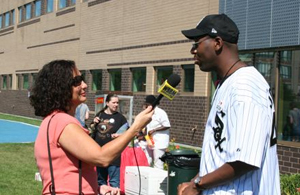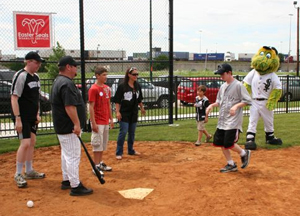Do social skills define autism?
by Beth Finke
I just read a blog post questioning the emphasis put on “social skills” when defining autism.
Yes, autism affects how autistic people socialize. We don’t do it like neurotypicals. But that isn’t the root or sole effect of autism, nor is it even enough for a diagnosis. Having a hard time socially is something many, if not most, of us experience. But many people without autism have a hard time socially, too.
There is no one thing that every autistic has, that distinguishes autism from anything else. Instead, autism is defined by people having several of a set of characteristics – not all the characteristics, but enough to be significant, and enough to distinguish autism from many other neurological differences.
Having just one characteristic (for instance, “social trouble”) is not autism.
The blogger’s web site identifies him as “an autistic adult who wants to see my people succeed and prosper in this world.”
Unfortunately, there are a lot of difficulties we experience, only some of which have anything to do with our actual autism. Many of them deal with the way society sees and treats us.
The site encourages readers to explore the difficulties people with autism experience, and it features resources that might help people with autism overcome some of those difficulties.
Please note that I enjoy being autistic. I am happy to be who I am, and that I consider autism to be a key part of my existence. You will not find self-pity here, nor will you find information on how to cure my kind of person. I hope you stick around long enough to learn why I feel this way!
I did stick around his site for quite a while, and felt rewarded for taking the time.









